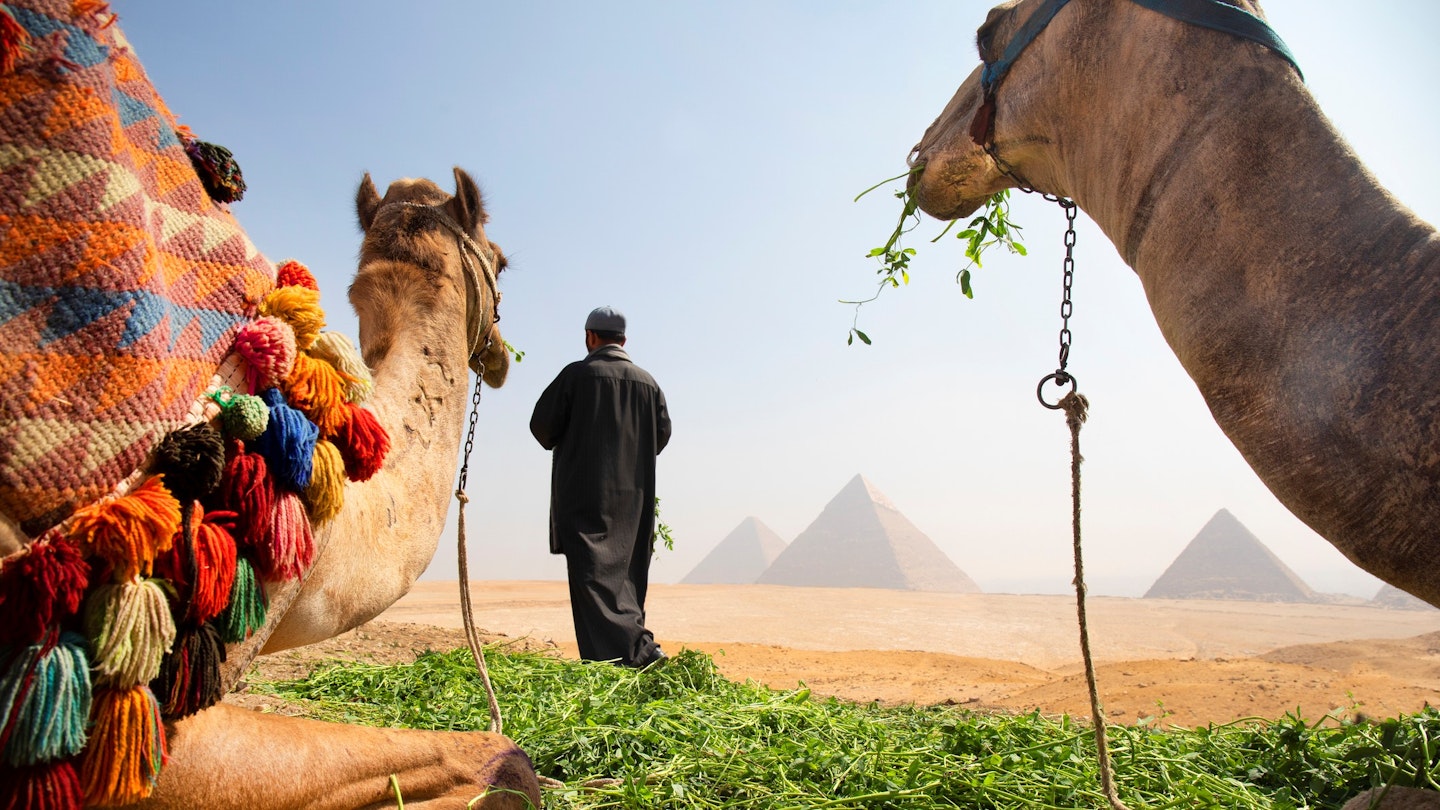Your Essential Guide to Traveling in Egypt
Egypt’s rich history reverberates through its modern-day culture. There’s a plethora of activities that will engage your senses, from majestic ancient sights to lively streets filled with aromatic foods and vibrant nightlife. To fully indulge in all the excitement, consider the country’s cultural traditions. This guide provides vital tips on health, safety, and etiquette to ensure you have the best experience in Egypt.
1. Consider Getting Your Visa in Advance
Many travelers can obtain a renewable single-entry tourist visa on arrival for USD $25, valid for 30 days. However, if you lack any necessary documents or if there’s an issue processing your visa on arrival, entry could be denied. To avoid lines and potential problems at the airport, applying for an e-Visa through the official government portal before travel is advisable.

2. Prepare a Rough Itinerary
There’s so much more to Egypt than just the pyramids. Effective planning can help you avoid logistical challenges. Organizing your days by area is critical, especially in major cities where traffic can be both intense and unpredictable. Additionally, for beach lovers, destinations along the North Coast or Naama Bay offer great diving and snorkeling opportunities.
For those who prefer the road less traveled, consider visiting Egypt’s hidden gems, like the stunning Siwa Oasis. Egypt caters to every type of traveler, and creating a personalized experience means focusing on what’s important to you.
3. Learn Some Basic Arabic Phrases
Using Google Translate can be helpful for quick questions, but a genuine effort to communicate through basic Arabic phrases can enhance your interactions. Common phrases such as “al salam alaykom” (hello), “shukran” (thank you), and “ma’ al-salama” (goodbye) can go a long way in building rapport with locals.
4. Handle Egypt’s Weather with Care
Whether it’s the scorching heat or surprising chill, being prepared for Egypt’s variable weather is crucial. Sunscreen is vital year-round but especially so during the summer when temperatures can soar above 43.3°C (109.9°F). Conversely, winter temperatures can drop to 10°C (50°F), so packing warm clothes is essential if visiting between October and March.
5. Pack for the Heat but Keep It Conservative
Cotton clothing is ideal for Egypt’s climate. While locals dress casually, it’s essential to remember that Egypt is a conservative society. Loose-fitting clothing is best; avoid exposing too much skin. Although beach destinations are more relaxed about attire, it’s wise to respect local customs everywhere.

6. Consider Transportation When Choosing Accommodation
When booking your accommodations, consider nearby transportation options. Lodgings close to sights or metro stations can save you valuable time. Cairo and Giza are primarily accessible via the metro, and it’s advisable for female travelers to use carriages designated for women.
7. Observe Proper Etiquette at Religious and Historic Sites
When visiting mosques, remember to remove your shoes, and if you’re female, cover your head. At historic sites, avoid touching antiquities and using flash photography. On beaches, appropriate swimwear is acceptable, but be observant of local conduct and follow what others do.
8. Limit Public Displays of Affection
Egypt is conservative regarding public displays of affection. Holding hands is generally acceptable, but keep other physical interactions minimal. Platonic kisses on the cheek are common greetings among friends, but these gestures should be reserved for same-sex interactions.
9. Bring Small Bills and Be Prepared to Tip
Tipping is customary in Egypt. Tips can range from 5 EGP to 100 EGP depending on the service. Given that the country is primarily cash-oriented, carry both large and small bills. Restaurants typically expect a tip of 10% to 15%, while street vendors often appreciate any small change you can spare.

10. Embrace the Art of Haggling for Souvenirs
Markets in Egypt are filled with unique treasures, from papyrus to intricately crafted silverware. Don’t hesitate to haggle if you feel an item is overpriced; it’s part of the experience! However, avoid bargaining in larger shops with fixed prices.
11. Avoid Tap Water and Be Cautious with Street Food
To prevent stomach issues, it’s best to avoid tap water unless properly filtered. Bottled water is a safer option. Additionally, while Egyptian cuisine is tempting, some street food can be improperly prepared. Opt for reputable local eateries to indulge safely.
12. Be Aware of Flood Season
Flooding can occur in Egypt from June to September, primarily affecting coastal areas. Stay informed by activating news alerts and keeping track of local developments to navigate any potential issues smoothly.
13. Solo Female Travelers Should Stay Vigilant
If you are traveling alone, be cognizant of your surroundings to minimize unwanted attention. Confident interactions often deter harassers. Avoid quiet areas and seek crowded spaces if you feel uncomfortable, and always use designated female carriages when on the metro.
14. Tourist Police are Here to Help
Egypt is generally safe, but should you encounter issues needing law enforcement assistance, look for officers with a tourism police badge. They are stationed at tourist destinations. For non-emergency complaints, numerous avenues exist to report problems, including the Egyptian Ministry of Tourism and Antiquities.
Pro tip: Consider purchasing a local SIM card for easier communication and navigation. Major providers like Vodafone or Etisalat are available at the airport.




